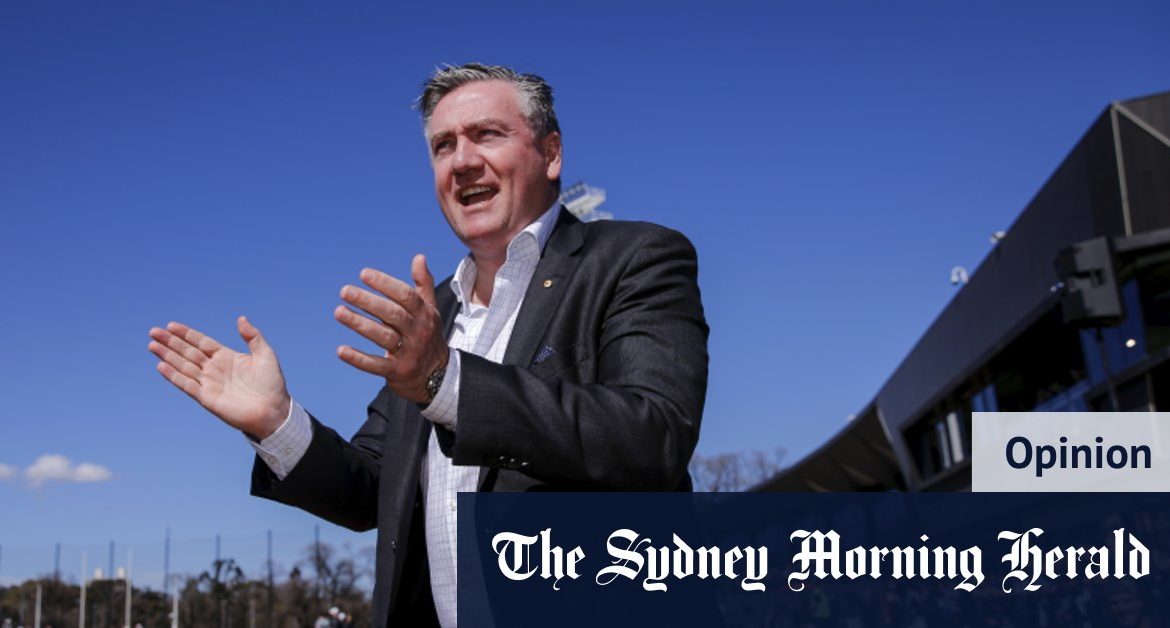It is fitting that McGuire’s great reveal was made directly to the Collingwood members at a fan forum, and not to the board, which he had largely handpicked and which was unlikely to force him out. For, like any successful politician, it was McGuire’s understanding of the fan base – especially the rank and file, the cheer squad and the rusted-on punters – that enabled him to remain at the helm of the club for so long.
But McGuire is to be commended for reading the play and leaving 12 months before his latest term was up. His decision has disarmed those – including this columnist – who felt he should be looking for a succession plan before this term expired.
He has exceeded that expectation and, as a consequence, his legacy at Collingwood will be more elevated than if he had clung to power, hanging around for the possibility of that second premiership that would fully frank his marathon tenure.
Collingwood without McGuire is a concept that is difficult to fathom and will take some adjustment when it happens. If it will be harder yards for journalists, who relied on Eddie’s willingness to make news, Collingwood may also feel some respite from the drama that often followed him.
Eddie McGuire choked back tears when he announced he’d be stepping down. Credit:Ryan Pierse
McGuire had spoken of the possibility of stepping aside back in 2016, when the Magpies were struggling under Nathan Buckley, but he said that he had spoken to his sons, Joseph and Alexander, who urged him to continue on fighting the fight for the black and white.
In 2017, a comprehensive review of club operations, by businessman and current board member Peter Murphy, recommended that Buckley retain his job, subject to a reorganised football department.
But the Murphy review also contained a largely unknown recommendation on board governance: that Collingwood introduce term limits for club directors. Such a suggestion would not be major news at most clubs, but at Collingwood, it was a potentially massive step, since the real meaning – the active ingredient – was that McGuire would have to finish up at a time not necessarily of his choosing.
Loading
That recommendation was, unsurprisingly, not adopted by the club board, which has two other directors, Alex Waislitz and Mark Korda, who have served for well over a decade (the former joined McGuire’s ticket and was voted on in 1998).
McGuire, clearly, did not wish to be forced out by a rule. He would go his way, on his terms.
His legacy is largely based on his first dozen years at the helm, given that he inherited an ossified club that was grossly under-performing on every metric and, worse, seemed culturally incapable of genuine change.
He hired Mick Malthouse, he brought sponsors – plugged relentlessly on The Footy Show – and over the next 12 years, he made Collingwood great again (a Trumpian slogan he would use in 2017) – by 2010-11, Eddie’s Magpies were the most powerful football club in Australia.
But the handover from Malthouse to Buckley, which marked the second phase of his presidency, was the beginning of a mixed legacy, given the four years spent out of the finals and the inability to claim that elusive second premiership.
More recently, Eddie’s gaffes – the most egregious of which was the Adam Goodes/King Kong comment on radio – have embarrassed the club.
That said, a platform remains for his successor that is far better than the one he took over.
Jake Niall is a Walkley award-winning sports journalist and chief AFL writer for The Age.
Most Viewed in Sport
Loading







